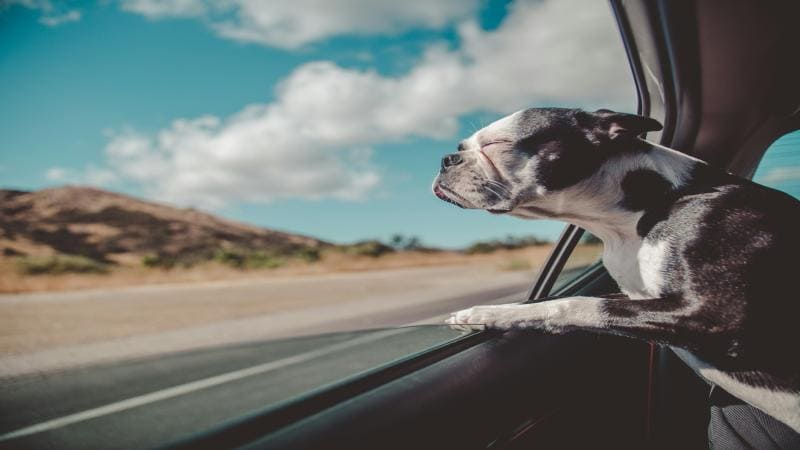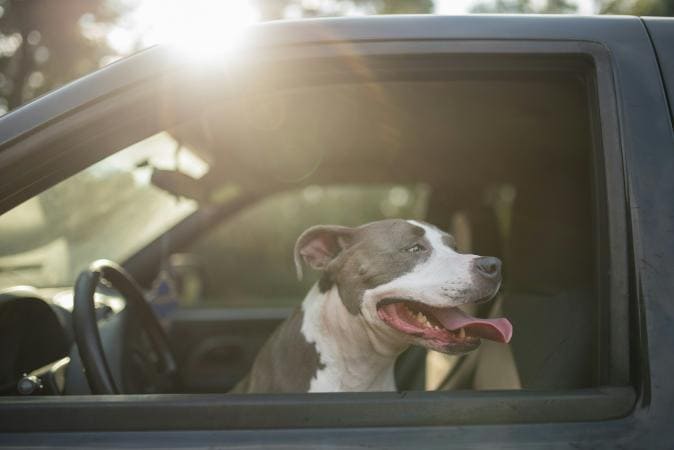In the rapidly growing pet care industry, pet taxi services have become an invaluable resource for owners needing safe and reliable transport for their beloved animals. However, operating such a service in the UK comes with unique responsibilities and, crucially, specific insurance requirements. This comprehensive guide will help you navigate the world of pet taxi insurance providers in the UK, ensuring you understand the essential coverage, legal requirements, and factors affecting cost to protect your pet transport business effectively.
The Critical Need for Specialist Pet Taxi Insurance
It’s a common misconception that a standard personal car insurance policy will cover you for commercial activities like transporting pets for a fee. This is simply not the case. Your personal policy will almost certainly exclude “hire and reward” use, leaving you completely uninsured in the event of an incident while working.
Specialist pet taxi insurance is designed to address the unique risks inherent in transporting animals commercially. Imagine a sudden stop causing a pet to be injured, a nervous animal damaging the interior of your vehicle, or a pet escaping during a comfort break. Without the right cover, you could face significant financial losses from vet bills, property damage claims, or legal action. Having dedicated insurance not only protects your finances but also demonstrates your professionalism and commitment to animal welfare, instilling confidence in your clients.
Essential Coverage in Pet Taxi Insurance Policies
A robust pet taxi insurance policy will typically comprise several key components, ensuring comprehensive protection for you, your vehicle, and the animals in your care.
1. Hire and Reward Motor Insurance
This is the cornerstone of any pet taxi insurance policy and is legally required for any vehicle used to transport passengers or goods for payment in the UK.
- What it covers:This policy covers the vehicle itself and is specifically adapted for commercial use. It provides cover for damage to your vehicle, third-party liability (damage to other vehicles or property, or injury to other people), fire, and theft, depending on the level of cover chosen (Third Party Only, Third Party Fire & Theft, or Comprehensive).
- Why it’s essential:Without a “hire and reward” endorsement on your policy, any incident that occurs while you are operating your pet taxi service could result in your standard motor insurance being invalidated, leaving you personally liable for all costs.
2. Public Liability Insurance
Beyond vehicle-specific cover, Public Liability Insurance is vital for protecting your business against claims from third parties.
- What it covers:This protects you if a third party (e.g., a member of the public, a client, or their property) suffers injury or damage as a result of your business activities, excluding incidents directly related to the vehicle in motion (which falls under motor insurance). For example:
- A pet you are loading or unloading scratches a neighbour’s car.
- A client trips over your transport crate while you are collecting a pet.
- A pet you are handing over bites a third party.
- Recommended limits:Most pet taxi businesses opt for at least £1 million in cover, with many choosing £2 million or even £5 million, especially if operating in busy public areas or transporting high-value animals.

3. Care, Custody, and Control (CCC) Coverage
This specific coverage is absolutely critical for pet taxi services as it addresses direct liability for the animals you are transporting.
- What it covers:CCC cover provides protection if an animal in your direct care, custody, or control suffers injury, illness, goes missing, or, tragically, dies while under your responsibility. This includes:
- Accidental injury to a pet during transit (e.g., due to sudden braking, a fall in the crate).
- A pet becoming ill or experiencing an adverse reaction during transport that requires immediate veterinary attention.
- The loss or theft of an animal while in your care.
- Veterinary fees:Many policies will cover emergency vet bills incurred due to an accident or sudden illness while the pet is in your care. Always check for any exclusions, such as pre-existing conditions.
- Why it’s essential:This is arguably the most common claim type for pet businesses, and without it, you would be personally responsible for potentially significant veterinary costs or even the value of the animal.
4. Lost Key Cover
As a pet taxi service, you may hold clients’ house keys for collections or drop-offs.
- What it covers:This provides financial protection for the cost of replacing lost or stolen client keys and, crucially, the expense of changing locks at your client’s property if their keys go missing while in your possession.
- Why it’s essential:It’s a practical cover that saves you from unexpected costs and client inconvenience.
5. Professional Indemnity Insurance
While not always a standard inclusion for basic pet taxi services, Professional Indemnity Insurance can be valuable if you offer advice or more complex services.
- What it covers:Claims of negligence, errors, or omissions in the professional advice or services you provide. For instance, if a client claims that incorrect transport advice you gave led to a negative outcome for their pet.
- Why it might be useful:Adds an extra layer of protection against claims arising from your professional conduct.
6. Personal Accident Cover
As a self-employed driver, your ability to work is your income. Personal Accident Cover provides a payout if you suffer an accidental injury that prevents you from working.
- What it covers:
- Loss of income due to temporary disablement.
- Lump sum payments for more serious injuries or permanent disablement.
- Why it’s useful:It’s a crucial consideration for self-employed individuals who rely on their physical ability to earn a living.
7. Employer’s Liability Insurance (If You Have Staff)
If your pet taxi business grows and you employ anyone – even part-time, temporary, or voluntary staff – Employer’s Liability Insurance is a legal requirement in the UK.
- What it covers:Claims from employees who become ill or are injured as a result of their work for your business.
- Why it’s legally essential:Failure to have this insurance can result in significant fines (up to £2,500 per day you are uninsured).
Additional Essential Covers for Pet Taxi Businesses
Beyond the core components, consider these valuable additions to your policy:
- Breakdown Cover:Given your reliance on your vehicle, comprehensive breakdown cover is crucial to ensure timely and safe pet delivery, minimising stress for both you and the animals.
- Equipment Cover:Protects your specialised business equipment (e.g., bespoke crates, harnesses, ramps, cleaning equipment) against theft, loss, or damage, typically when stored securely in your vehicle or at your premises.
- Legal Expenses Insurance:Covers the costs of legal disputes that aren’t covered by your liability policies, such as contract disputes, tax investigations, or defending yourself against prosecution for regulatory breaches.
- Business Interruption Insurance:Provides cover for loss of income if your business is unable to operate due to an insured event (e.g., your vehicle being out of action due to an accident, or damage to your base of operations).

Specific Legal Requirements for Pet Taxi Insurance in the UK
Operating a pet taxi service in the UK involves more than just insurance; there are specific legal and regulatory requirements you must meet to ensure animal welfare and compliance.
DEFRA / APHA Regulations (Animal Welfare Licences)
The Animal Welfare (Licensing of Activities Involving Animals) (England) Regulations 2018 stipulate that anyone transporting animals as a commercial activity generally requires a licence from their local council. This is often referred to as an Animal Activity Licence (AAL).
- Transporter Authorisation:For journeys over 65km (approx. 40 miles) for commercial purposes, you will need a transporter authorisation from the Animal and Plant Health Agency (APHA), an executive agency of DEFRA.
- Type 1 Authorisation:For journeys over 65km and up to 8 hours.
- Type 2 Authorisation:For journeys over 8 hours, or for international transport.
- Licence Conditions:Your local council licence will typically include conditions related to:
- Vehicle Suitability:Ensuring the vehicle is fit for purpose, safe, clean, ventilated, and provides adequate space and comfort for the animals.
- Animal Welfare in Transit:Requirements for rest periods, access to water, and appropriate handling.
- Contingency Plans:Documented plans for emergencies such as breakdowns, accidents, or animals falling ill.
- Insurance:A common condition of these licences is proof of adequate and appropriate insurance cover.
Road Traffic Act
The Road Traffic Act is the overarching legislation governing vehicle use in the UK. As mentioned, your vehicle must be covered by valid “hire and reward” motor insurance to legally operate as a pet taxi.
Local Council Requirements
Beyond DEFRA/APHA, some local councils may have additional specific stipulations or by-laws for pet transport businesses operating within their jurisdiction. Always check with your local authority.
What Factors Affect the Cost of Pet Taxi Insurance in the UK?
The premium you pay for pet taxi insurance in the UK is not a fixed price; it’s influenced by several key factors:
- Vehicle Type & Value:More expensive, larger, or specialist vehicles (e.g., custom-fitted vans for multiple animals) will generally cost more to insure than a smaller, standard car.
- Vehicle Modifications:Any specific adaptations made for pet transport (e.g., built-in cages, specialised ventilation, easy-clean surfaces) should be declared and can affect the premium.
- Coverage Levels:Choosing higher liability limits (e.g., £5 million Public Liability) or adding extensive optional covers will increase your premium.
- Excess Amounts:Opting for a higher voluntary excess (the amount you pay towards a claim) can often reduce your overall premium.
- Driver History:Your driving record, including any no-claims bonus, past convictions, age, and years of driving experience, will significantly impact the cost. Businesses with multiple drivers will have premiums based on the riskiest driver.
- Geographical Operating Area:Operating primarily in dense urban areas (like London) or undertaking extensive national/international journeys may lead to higher premiums due to increased risk exposure.
- Types of Animals Transported:While most policies cover common domestic pets, transporting certain breeds (e.g., those on the Dangerous Dogs Act list, if legally permitted for transport), or exotic/large animals, might affect policy availability or cost.
- Business Turnover & Size:Larger businesses with higher revenue, more vehicles, or more employees generally face higher premiums due to increased overall exposure.
- Claims History:A history of previous insurance claims, either personal or business-related, can lead to higher premiums.
- Vehicle Security:Enhanced security features in your vehicle (e.g., immobilisers, trackers) can sometimes lead to discounts.
Best Pet Taxi Insurance Providers UK (and How to Choose)
Finding the best pet taxi insurance provider in the UK means looking for specialists who truly understand the unique demands of your business. While general insurers may offer business policies, those with expertise in animal transport often provide more tailored and comprehensive cover.
Specialist Pet Business Insurers to Consider:
- Pet Business Insurance (PBI):A well-regarded specialist in the pet care sector, Pet Business Insurance offers specific pet taxi cover designed for professional animal transporters. Their policies typically include essential covers like Hire & Reward, Public Liability, and Care, Custody & Control, along with crucial extras. Their website provides detailed information on their offerings, and they are known for their strong customer service, reflected in their impressive 9/5 Feefo review based on 1089 verified reviews
- Brooks Braithwaite (British Pet Insurance):Another highly reputable provider with significant experience in animal trades motor insurance, offering policies specifically for pet transport.
- Protectivity:Known for tailoring insurance policies to various pet services, including pet taxi operations, with flexible options for different business sizes.
- SEIB Insurance Brokers:Specialists in animal trades motor insurance, they can offer bespoke van or car insurance schemes for pet taxi services, often accommodating specific modifications.
- Cliverton:With a deep understanding of animal businesses, Cliverton provides comprehensive insurance solutions that can be adapted for pet taxi services.
Key Considerations When Choosing a Provider:
- Expertise in Animal Transport:Do they genuinely understand the nuances and risks of moving live animals commercially, or are they a generic insurer adapting a standard policy?
- Reputation and Customer Reviews:Check independent review platforms like Feefo for feedback on their claims handling, customer service, and overall reliability.
- Policy Inclusions & Exclusions:Carefully review what is automatically included versus what are optional extras, and critically, what is not
- Flexibility:Can the policy be easily adjusted as your business grows or changes (e.g., adding more vehicles, extending operating areas)?
- Quote Process & Support:Is it easy to get a transparent quote online or via phone? Do they offer accessible customer support for queries and claims?
Specific Applications & Scenarios
Best Pet Taxi Insurance for Self-Employed Drivers UK
For sole traders, a robust policy combining Hire & Reward motor insurance with comprehensive Public Liability and Care, Custody, and Control (CCC) is paramount. Adding Personal Accident cover is also highly advisable, as your income relies directly on your ability to work. Providers like Pet Business Insurance are adept at structuring policies for self-employed individuals, ensuring essential cover without unnecessary extras.
Best Insurance for Long-Distance Pet Transport UK
If you undertake extensive journeys, particularly those over 8 hours or internationally, your insurance needs become more complex. You’ll definitely require a DEFRA Type 2 Transporter Authorisation. Your insurance policy will need to accommodate:
- Higher mileage:Premiums may reflect increased time on the road.
- Overnight stops:Ensure cover extends to animals in your care during overnight stops.
- International transit:If applicable, verify the geographical scope of your policy and ensure it aligns with any specific requirements for cross-border animal transport.
Insurance for General Taxi Services that Occasionally Transport Pets
If you run a general taxi service and occasionally transport pets as part of your existing operations, it’s crucial to clarify with your current taxi insurance provider. Many standard taxi policies will NOT cover the “care, custody, and control” of animals or specific liabilities related to animal transport. You may need to either:
- Extend your existing policy:Ask if they can add an endorsement for pet transport, specifically covering animal welfare and associated liabilities.
- Purchase a separate specialist policy:In many cases, it’s safer and more comprehensive to acquire a dedicated pet taxi insurance policy from a specialist provider to cover the animal-specific risks.

Important FAQs
- Is “hire and reward” insurance always necessary for pet taxis?Yes, it is a legal requirement in the UK for any vehicle used to transport goods or passengers for payment.
- What if an animal gets sick in my vehicle?A good Care, Custody, and Control (CCC) cover component will often cover emergency veterinary fees incurred due to an animal falling ill or sustaining an injury while in your care.
- Does my personal car insurance cover pet taxi work?No, almost certainly not. Personal policies exclude commercial use (“hire and reward”), leaving you uninsured.
- How quickly can I get pet taxi insurance?Many specialist providers offer online quote systems that can provide instant proof of cover, allowing you to get insured quickly.
- What happens if I have an accident with a pet in the vehicle?Your Hire and Reward motor insurance would cover vehicle damage and third-party liabilities, while your Care, Custody, and Control (CCC) cover would address any injuries or loss to the pets themselves.
- Do I need a DEFRA license for a pet taxi?If you’re transporting animals commercially for journeys over 65km, yes, a Transporter Authorisation (Type 1 or Type 2) from APHA/DEFRA is required. Local council licences may also be needed depending on your specific activities.
Protect Your Pet Taxi Business Today
Operating a pet taxi service is a rewarding venture, but it comes with significant responsibilities. Investing in comprehensive pet taxi insurance is not just about meeting legal obligations; it’s about safeguarding your business, your finances, and ensuring the absolute best care for the animals entrusted to you. By understanding the types of cover available, the legal landscape, and the factors influencing cost, you can confidently choose the best pet taxi insurance providers in the UK to fit your unique needs.
Don’t leave your pet transport business exposed to unnecessary risks. Take the proactive step to secure the right insurance today.





